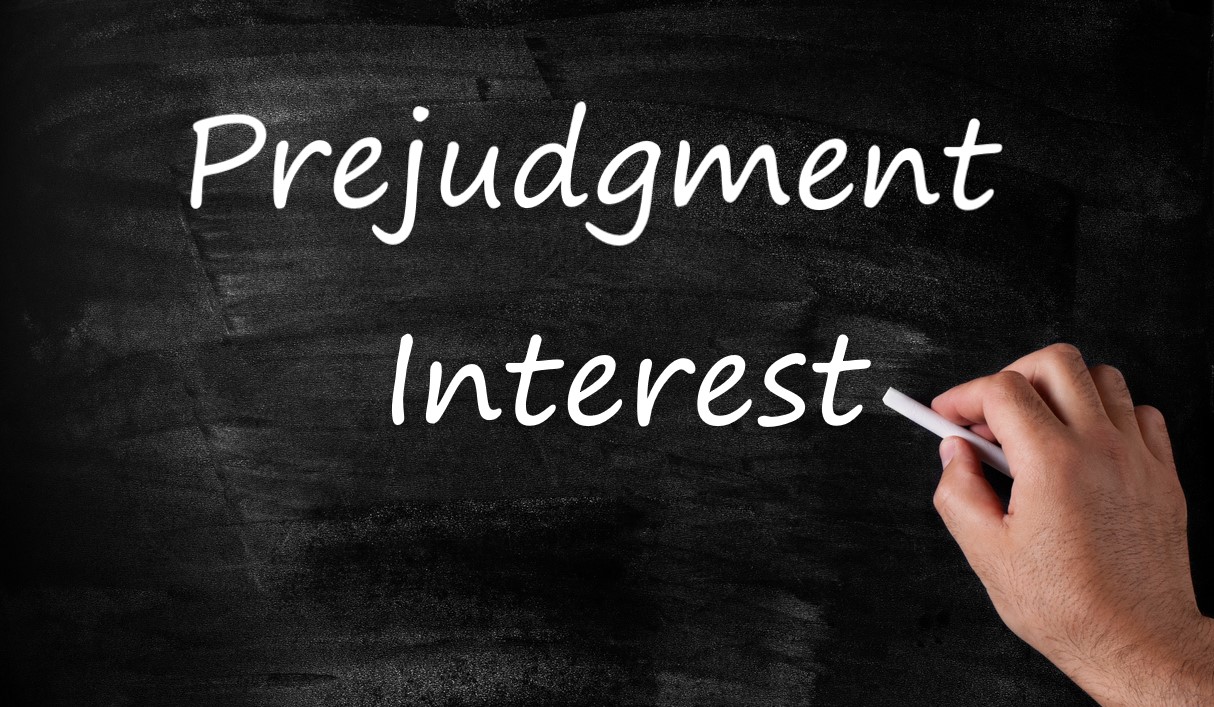In Oklahoma, insurance companies have an incentive to timely investigate and resolve claims submitted by insureds. Part of this incentive exists through a fee-shifting statute,1 where insureds can recover attorneys’ fees and costs if they are the prevailing party at trial. I recently wrote about an Oklahoma Supreme Court decision relating to recovery of fees and costs, Insured Oklahomans Have a Confirmed Right to Make Their Insurance Company Pay Their Attorneys Fees and Costs for Wrongfully Denied Claims.
Further incentive exists where insureds can recover interest against insurance companies if an insured is the prevailing party at trial.2 This compensates insureds for the loss of use of money to which they are entitled.
The amount of interest recoverable is set by statute.3 Under this statute, an insured who prevails at trial can recover interest on the verdict at a rate of fifteen percent (15%) per year, calculated from the date the loss was payable pursuant to the insurance contract, through the date the verdict was rendered.4 More plainly stated, when a jury awards an amount (a verdict) to the insured at the end of a trial, and when the amount awarded by the jury exceeds the amount of an offer of settlement submitted by the insurance company, the insured can look backwards and calculate not only attorneys’ fees and costs incurred, but also an additional interest amount based on the verdict amount.
To demonstrate the possible implications of this interest statute, consider McCrary v. Country Mutual Insurance Company,5 a case decided in the Northern District of Oklahoma. In McCrary, the insured plaintiffs suffered damage to their home when a sewer drain line failed under the slab of their home. A jury awarded the plaintiffs $22,000 in actual damages and $25,000 in punitive damages. Following this verdict, the plaintiffs sought to recover interest on the verdict amount. Notably, they also sought recovery of attorneys’ fees, which the court awarded. The court agreed the plaintiffs were entitled to recover interest, and the court calculated interest based on the $22,000 awarded for actual damages. The start date for the court’s calculation of interest was the date the defendant insurance company denied the plaintiffs’ claim. A total of 1,039 days passed between the date the claim was denied and the date the jury rendered its verdict; thus, the insured plaintiffs were entitled to recover interest for the 1,039 days during which they were deprived of the use of the money contractually owed to them. Applying the 15% annual interest rate, the court determined $9.04 was the daily interest amount owed to the insured plaintiffs, and $9,393.70 was the total pre-judgment interest amount owed to them. Thus, on a $22,000 award, the plaintiffs were able to recover an additional $9,393.70 in interest.
Recovery of pre-judgment interest is not limited to instances where a jury awards a verdict. An insured plaintiff may also recover interest if a court enters a judgment that renders the insured the prevailing party.6 This can occur, for example, where the court enters summary judgment in the insured’s favor7 or where the insured accepts an insurance company’s offer to confess judgment.8
As the McCrary case reflects, interest amounts owed to insureds can be significant, especially where a verdict is sizeable. This is good news for insureds who are owed benefits by their insurers, and is just one more way in which the Oklahoma legislature has incentivized insurance companies to pay contractually owed amounts to their insureds.
___________________
1 36 O.S. § 3629
2 36 O.S. § 3629(B)
3 See Id.
4 Id.
5 McCrary v. Country Mut. Ins. Co., No. 4:13-cv-00507 (N.D. Okla. Aug. 24, 2016).
6 Yousuf v. Cohlmia, 741 F.3d 31 (10th Cir. 2014).
7 Id. at 47 (“[a party’s] claim for prejudgment interest is not defeated simply because the judgment was entered pursuant to summary judgment rather than a jury verdict.”)
8 Banks v. Cimarron Ins. Co., Inc., 882 P.2d 580 (Okla. Civ. App. 1994).




